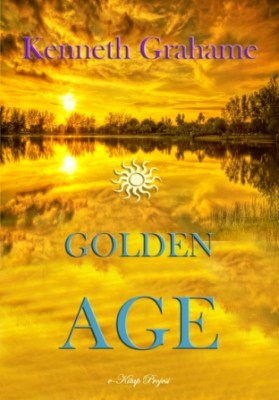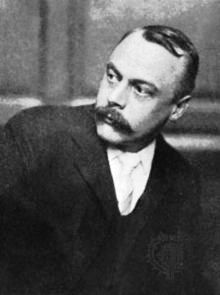These elders, our betters by a trick of chance, commanded no respect, but only a certain blend of envy—of their good luck—and pity—for their inability to make use of it. Indeed, it was one of the most hopeless features in their character (when we troubled ourselves to waste a thought on them: which wasn't often) that, having absolute licence to indulge in the pleasures of life, they could get no good of it. They might dabble in the pond all day, hunt the chickens, climb trees in the most uncompromising Sunday clothes; they were free to issue forth and buy gunpowder in the full eye of the sun—free to fire cannons and explode mines on the lawn: yet they never did any one of these things. No irresistible Energy haled them to church o' Sundays; yet they went there regularly of their own accord, though they betrayed no greater delight in the experience than ourselves.
On the whole, the existence of these Olympians seemed to be entirely void of interests, even as their movements were confined and slow, and their habits stereotyped and senseless. To anything but appearances they were blind. For them the orchard (a place elf-haunted, wonderful!) simply produced so many apples and cherries: or it didn't, when the failures of Nature were not infrequently ascribed to us. They never set foot within fir-wood or hazel-copse, nor dreamt of the marvels hid therein. The mysterious sources—sources as of old Nile—that fed the duck-pond had no magic for them. They were unaware of Indians, nor recked they anything of bisons or of pirates (with pistols!), though the whole place swarmed with such portents. They cared not about exploring for robbers' caves, nor digging for hidden treasure. Perhaps, indeed, it was one of their best qualities that they spent the greater part of their time stuffily indoors.
To be sure, there was an exception in the curate, who would receive unblenching the information that the meadow beyond the orchard was a prairie studded with herds of buffalo, which it was our delight, moccasined and tomahawked, to ride down with those whoops that announce the scenting of blood. He neither laughed nor sneered, as the Olympians would have done; but possessed of a serious idiosyncrasy, he would contribute such lots of valuable suggestion as to the pursuit of this particular sort of big game that, as it seemed to us, his mature age and eminent position could scarce have been attained without a practical knowledge of the creature in its native lair. Then, too, he was always ready to constitute himself a hostile army or a band of marauding Indians on the shortest possible notice: in brief, a distinctly able man, with talents, so far as we could judge, immensely above the majority. I trust he is a bishop by this time,—he had all the necessary qualifications, as we knew.

































